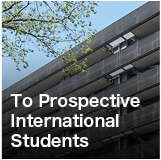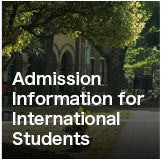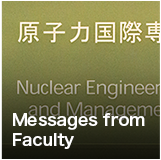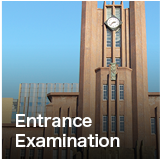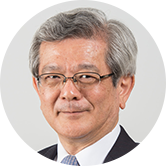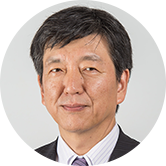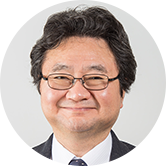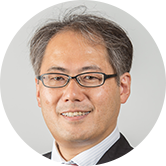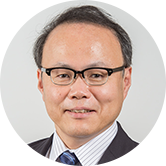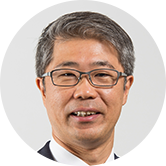- HOME
- For Prospective Students
- Study at the Department of Nuclear Engineering and Management
- Professor Akira YAMAGUCHI
Akira YAMAGUCHI Professor
Study02
We no longer live in a time where careful accumulation of data guarantees good research.
What is required is how to introduce one’s novel thinking, concepts, and ideas into the research.
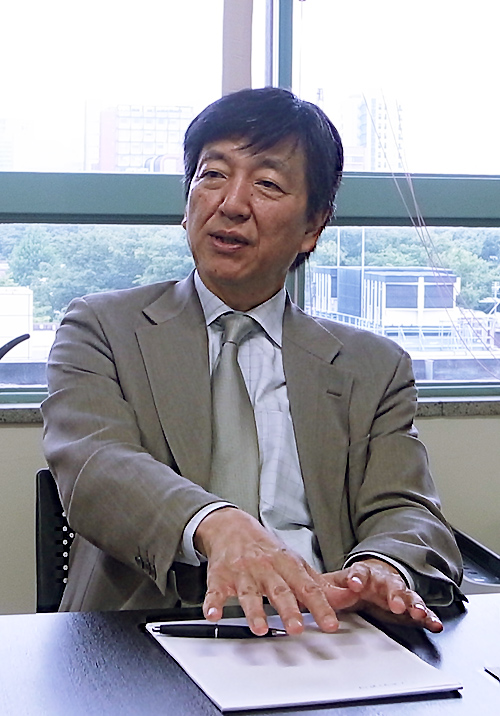
Which areas of nuclear power can students learn in your laboratory?
Our main research is focused on safety and design. The research theme is how to assess safety risks, how to use the assessed risks, and how to integrate these risks when making final decisions. Moreover, our research includes risk management and risk science, which involve the process of how to take actions after the final decisions, how to follow up on those actions, and how to learn lessons from them to make better decisions In the future. Naturally, one needs to know about many topics to assess risks. Simulation of how systems and social structures move and the studying various scenarios are required in research on design and safety. Our research involves combining academic fields to observe various physical phenomena and social occurrences and reflect them in decision making aimed at bettering society. How to create the social structures and engineering system are all part of object design. However, each challenge that we face demands different imagination and abilities for its solution. First, we focus on a specific object and think, for instance, about the safety or risk management of a nuclear power facility and the simulation of an accident. Then we gradually widen our scope, and, finally, it is necessary to integrate every piece of knowledge and information to competently utilize risks. One’s ability to obtain information by utilizing various perspectives and approaches determines the probability of the quality and success of the risk assessment and the actions that are to be taken. Simple probability calculation is not enough. Instead, it is important to utilize simulation to understand the law of things, acquire experience, and actively obtain information by oneself.
What types of future paths (careers) are there for your students after their study?
I taught at Osaka University before I came here. As this is only my third year at The University of Tokyo, I don’t have many graduates from my laboratory yet. However, simulation technology and assessment skill are areas with universal applicability, so the students will have many options for their future career. Aside from electric power companies, the diverse fields that they may work in include heavy industry makers, government agencies, consulting, engineering, and banks.
Could you tell us what you think are the attractive aspects of the Department of Nuclear Engineering and Management?
These days, I believe more strongly than ever that future generations will be required to have the ability to frame problems by defining the problems, devising research procedures to find solutions, and integrating diverse, overabundant information during the solving process. The name for our department includes the word Management. One characteristic of the research at our department is that it involves a wide range of fields, including nuclear power, energy, and management. Although fewer students are majoring in nuclear power, the students who study nuclear power here will nurture their perspectives, sense of balance, and total ability. Their sensibility to sociological ways of thinking and psychological perspectives will improve in addition to their understanding of technology, science, and engineering without them being conscious of it. These are all skills necessary to be active in society. The students can integrate their skills and improve their abilities while conducting their research projects.
Could you give us a message for prospective students?
Please be bold when deciding on your career. You will never know if the answer you came up with, after one year of thinking or one week of thinking, is correct. If you start studying, the topic will only get more and more interesting, and you will be drawn to it. Thus, you should listen to your heart and be bold in deciding on your career and other matters. On the contrary, I think one should be flexible enough to absorb the recent developments in any field and using them to develop one’s own research. I believe the students today will be working until they are around 70, which means that, even if they study till the age of 30, they will have 40 years of professional life after that. I’d like them to be true to their hearts, not be afraid of changing direction, and not be rigid to progress.


